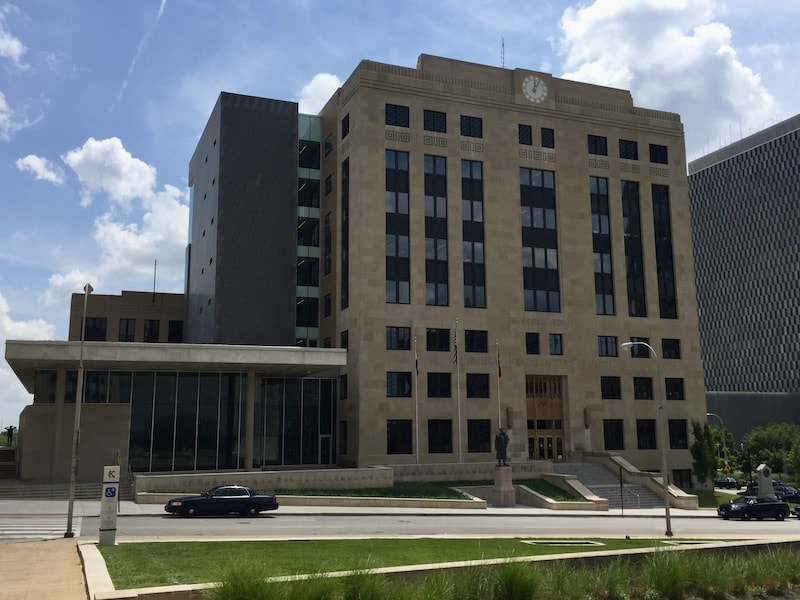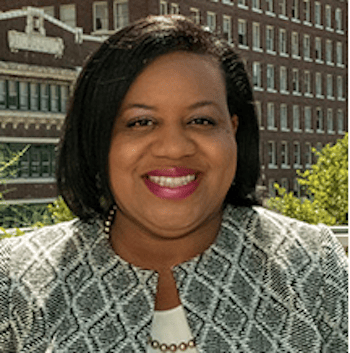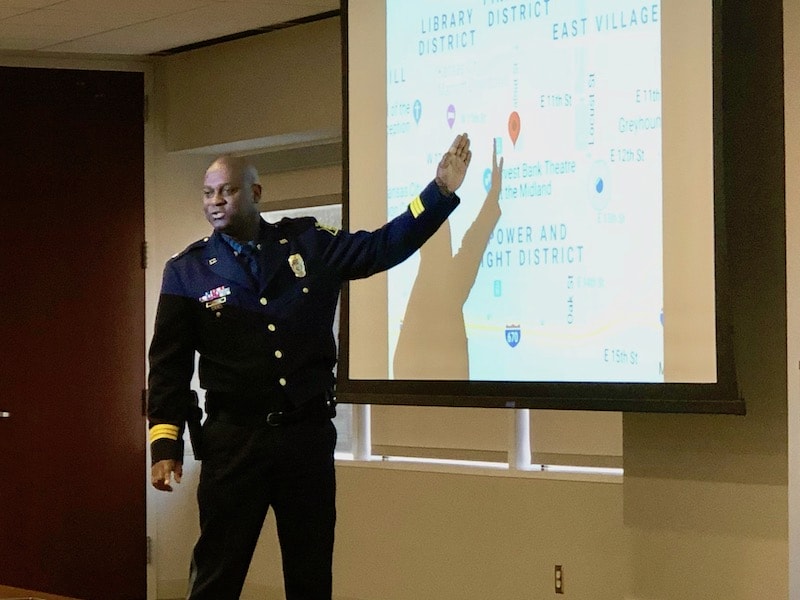Councilwoman Asks City Manager to Explore Local Control of KC Police

Published November 5th, 2019 at 6:02 PM
(Editor’s note: the Council Finance, Governance and Public Safety Committee voted to delay consideration of this resolution until Jan. 8).
By Kevin Collison
The City Council may take up one of the community’s most contentious and important civic issues soon: whether returning the police department to local control can help reduce the city’s soaring crime rate.
Councilwoman Melissa Robinson introduced a resolution last week asking the City Manager to explore the pros and cons of local control of the Kansas City Police Department, and then report his findings to the Council in 60 days.
“We are the only city in the country without local control,” Robinson said. “We need to find out what our expectations are when it comes to results and how our dollars have been deployed.
“From a logical perspective, we should take a hard look at why we don’t have local governance of the department.
“From a Council perspective, the people I report to are looking for a return on their investment and how we deploy our police, particularly in the Third District where there is a high level of homicides.
“The expectations of a lot of my constituents is we need to be very clear as to why we’re not moving forward with local governance.”

Kansas City Councilwoman Melissa Robinson (Photo from City Hall website)
Robinson’s resolution was referred to the Council Finance, Governance and Public Safety Committee last week.
The committee is expected to take up the issue today at 10:30 a.m. (see above) and depending on its recommendation, the resolution could come to the full Council next week, Robinson said.
The Council woman said she’s approaching the issue of local control from the governing and stewardship perspective.
The police department is receiving $255 million in the current budget.
“I have a positive, healthy view of our local department,” Robinson said. “I want to look at ways the community can be more participatory in delivering services.
“This is no way a finger pointing exercise at the department that’s something’s going wrong. It’s from a pure governance and stewardship perspective.”
Kansas City is the only major American city with a police department not run directly by city elected representatives.
For many years, both the St. Louis and Kansas City police departments were run by state-appointed commissions, but St. Louis had local control returned in 2013.
Robinson said Kansas City should not look to St. Louis, which is still experiencing stubbornly high crime levels, as an example of how local control could work.
“St. Louis is not a helpful model,” she said.

KCPD Deputy Chief Karl Oakman briefed the Downtown Council on the downtown crime situation last September after three murders occurred there in August.
The Council woman suggested one way to run the Kansas City police department is to continue the board of commissioner approach, but expand it to seven members with the mayor appointing the chairperson and each Council district choosing a representative.
“I hear that works well,” Robinson said. “You have a body responding to the Council and working with the police department to deliver the best service.”
With Kansas City regularly among the nation’s most violent cities, the community is seeking answers to better address the problem.
The city’s overall violent crime rate is 316.7 percent above the national average, according to a report in CityRating.com.
Last year, it was among the top 10 cities in the U.S. for per capita homicides, and there have been 124 murders so far this year as of last weekend.
CityRating.com also reported the city’s property crime rate was 77.8 percent above the national average.

Kansas City Police Chief Rick Smith
There have been repeated calls in recent years for ending a police governance structure dating back to the days of Boss Pendergast.
During Pendergast’s years in power in the 1920s and 1930s, police corruption was rampant. To address the problem, the governor took control by appointing the five-member police commission. The lone elected commissioner is the mayor.
The department has about 1,400 sworn officers and 600 other employees.
Early in his term, former Mayor Sly James tried to tackle the topic of local police control, but his effort failed in 2013 when a committee he appointed to study the idea recommended against it.
Robinson was elected to represent the Third District last summer.
She began her social service career at the Ad Hoc Group Against Crime where she served as the Director of Crisis Intervention, assisting families in navigating the region’s social service and criminal justice systems, according to her city biography.
In her resolution, Robinson asks the City Manager to include a survey of community leaders in his analysis.
Her resolution asks the City Manager to report back to the Council within 60 days of the adoption of the resolution with his or her findings and conclusions.
Robinson expects City Manager Troy Schulte, who is retiring at the end of February, would conduct the review.


